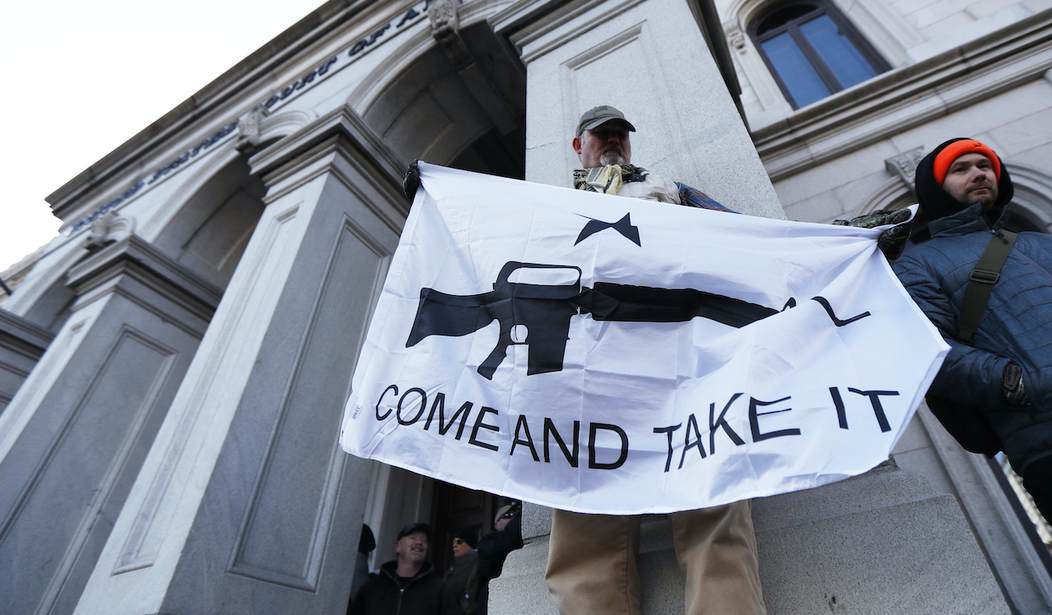Could suppressors become easier to obtain here? A recent policy change has shooting sports and hunting enthusiasts hopeful about deregulation.
On July 10th, the State Department announced it would overturn the 18-year ban on the commercial exportation of American-made suppressors.
This development was part of a 2017 interagency review stemming from a complaint by U.S. companies worried over losing sales opportunities to foreign competitors. Moreover, previous legislative efforts to lift the April 2002 ban on commercial suppressor exports, specifically the Suppressor Export Act (H.R. 5135), failed to gain traction in Congress.
The State Department’s Directorate of Defense Trade Controls (DDTC)— tasked with “ensuring commercial exports of defense articles and defense services advance U.S. national security and foreign policy objectives”—noted the policy change:
Effective immediately, the Department of State has rescinded its April 18, 2002, firearms sound suppressor policy. This policy provided for enhanced guidelines for the approval and issuance of export licenses for sound suppressors and restricted their export to only official end users such as government or military entities. Henceforth, DDTC will handle suppressor exports in a manner consistent with other USML-controlled technologies. This requires that applicants must identify a specific end user. Applications for the permanent export of hardware must include purchase documentation, a DSP-83 non-transfer and end use certificate (as suppressors are considered Significant Military Equipment under the USML), an end-user statement, and an import permit (if required by the destination country). Consistent with current licensing practices, all licenses will be reviewed and adjudicated on a case-by-case basis, and any pre-license checks or post shipment verifications will be conducted as deemed necessary and appropriate based on the totality of the circumstances of the transaction. Standard staffing protocols within the Department and interagency will be applied as required.
Recommended
The Industry Responds
Firearms and suppressor trade associations welcomed this move.
“For six years, the American Suppressor Association (ASA) has worked to legalize the commercial exportation of suppressors,” said Knox Williams, President and Executive Director of ASA, in a press release.
“We submitted FOIA requests, helped draft and introduce the Suppressor Export Act of 2016, and educated members of the State Department and White House about the realities of suppressor technology. We applaud the Trump Administration for taking charge and allowing American businesses to compete in thriving markets abroad. This change in policy will create hundreds of jobs at a time when our country needs them most.”
The National Shooting Sports Foundation (NSSF) said this rule change will benefit the U.S. financially and allow companies here to partake in this burgeoning global market.
“This is a commonsense decision to allow U.S. manufacturers to compete in overseas markets where suppressors are not only legal, but are often required for recreational shooting and hunting,” said Lawrence G. Keane, NSSF Senior Vice President and General Counsel.
“This is another win for the firearm and suppressor manufacturers by the Trump Administration. Earlier this year, the Trump Administration finalized the U.S. Munitions List to Commerce Control List Transition, streamlining the export process for firearms. That was an export reform years in the making and only held up for domestic political reasons. U.S. manufacturers, domestic production and U.S. workers will all benefit from this practical decision.”
Why Suppressors Are Unfairly Maligned
Suppressors are incorrectly referred to as “silencers,” a misnomer anti-gunners mendaciously assign to them to deceive the greater public. They cite their use by criminals and villains in Hollywood blockbuster films as justification for banning them—despite their infrequent, rare use in crime.
Added benefits of suppressors include the reduction of noise pollution along with a more accurate and comfortable shooting experience devoid of recoil.
Retrofitting this muffler on a handgun or rifle reduces gun shot noise by an average of 25-30 decibels, hitting below the recommended 140-decibel mark. If this threshold is exceeded on a regular basis, hearing impairment can result.
The National Hearing Conservation Association (NHCA) agreed with this notion:
“Although firearm suppressors do not completely eliminate the risk of [noise-induced hearing loss] from firearm noise, the risk can be significantly reduced…Therefore, NHCA supports the use of firearm noise suppressors as a form of an engineering noise control to reduce hazardous firearm noise exposures.”
Ironic Anti-Gun Europe Permits Them, We Don’t
It’s confounding to most Americans to see the proliferation of suppressors in the European Union, where gun control policies dominate and were strengthened in 2015. Why? Oddly enough, member states often require citizens to use suppressors for recreational shooting and hunting activities.
Back home, it’s legal to own suppressors in 42 states. It unfortunately comes with this caveat: the process to obtain them is notoriously onerous.
Under the National Firearms Act (NFA) of 1934, which falls under the purview of Bureau of Alcohol, Tobacco, Firearms and Explosives (ATF), applicants often encounter roadblocks to ownership. A background check for each purchase can take upwards of eight to ten months. Moreover, $200 tax is applied on top of that.
Talk about an exhaustive, burdensome process!
Conclusion
In wake of DDTC lifting the ban on commercial suppressor exports, the Trump administration should seriously consider action to deregulate legal ownership of suppressors.
It’s long past due for NFA protections to be lifted.

























Join the conversation as a VIP Member